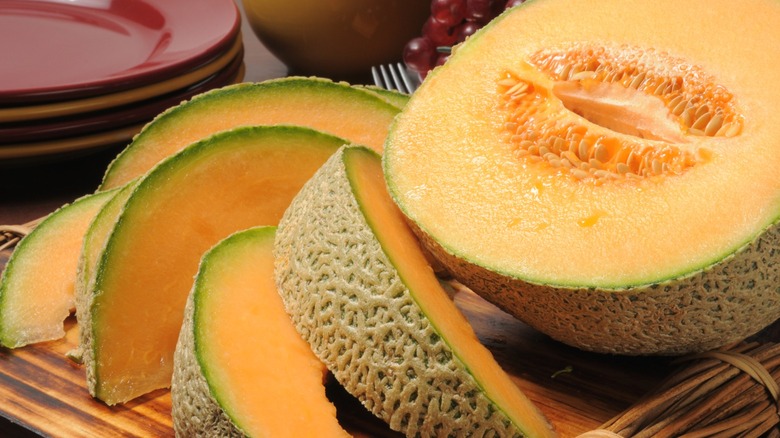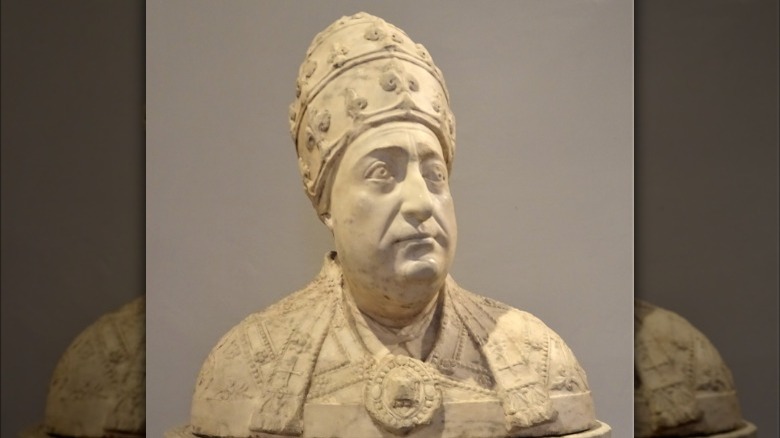The Pope Whose Death Was Blamed On His Obsession With Cantaloupe
We don't often think about the Pope's diet, do we? We understand logically that he has to eat something, and that he probably doesn't subsist solely on red wine and Communion wafers, but not many of us know the specifics. But popes are people too, even if they are (according to the Catholic faith) emissaries of God's will, and they have their own favorite foods. Pope Francis, an Argentinian through and through, enjoyed empanadas and steak; Pope Benedict XVI, a German, loved kartoffel, or potato pancakes; Pope Leo XIV, a Chicagoan who worked in Peru, is equally fond of both pizza (though not deep dish, which isn't really a Chicago favorite) and ceviche, making sure to clean his plate whenever he eats. And, going back in time, Pope Paul II loved cantaloupes so much that some even believed it ended up killing him.
There was no denying that Pope Paul II enjoyed the finer things in life. Contemporaneous reports described him wearing extravagant finery, collecting art, and eating all kinds of rich foods, including crab, pie, salted pork, and, of course, melons. To modern eyes, it might not have necessarily come as a surprise that a heavyset middle-aged man like Paul died after eating in excess.
However, his doctor at the time chalked up his death to an excess in "humid foods," referring to the now-discredited idea of humors in the blood causing ailments, noting that he had eaten two large melons the day before he died. The more likely reason was a heart attack.
Pope Paul II's death might have come from overeating -- or was it murder?
Pope Paul II was born Pietro Barbo, a member of the prominent Barbo family in 15th-century Venice. Although he hadn't originally planned to enter the clergy, he had a holy pedigree: his uncle on his mom's side was Pope Eugene IV, who reigned for sixteen years. Perhaps thanks to a bit of nepotism, Barbo quickly climbed the ranks to become a cardinal and was well-liked enough by his peers to be elected Pope in the 1464 papal conclave. As the monarch of the Papal States, one of the many states of Italy at the time, Paul was embroiled in all sorts of intrigues and controversies, up to and including his eventual death.
Some believe that Paul was, in fact, poisoned in a plot by humanists, a group of scholarly Catholics whom Paul oppressed and imprisoned. (One such humanist, Bartolomeo Platina, wrote many of the contemporaneous reports concerning Paul, so it's not exactly clear how much of the Pope's excess and cruelty was real and how much was exaggerated by a political rival.) While there have been cantaloupe recalls that have caused fatalities, chances are that Paul wasn't done in solely by eating too much of it — but at this point, we certainly won't be able to know for sure.

